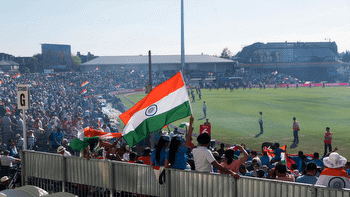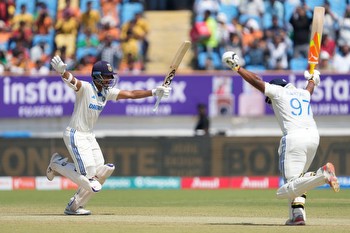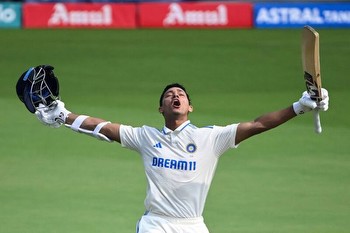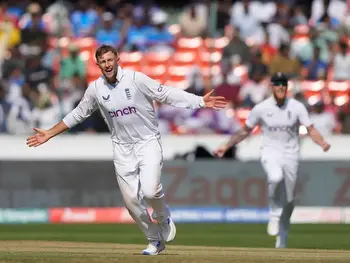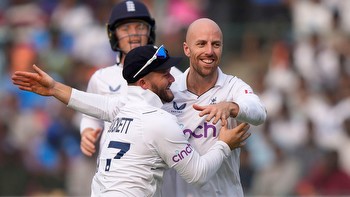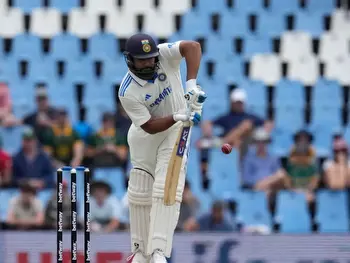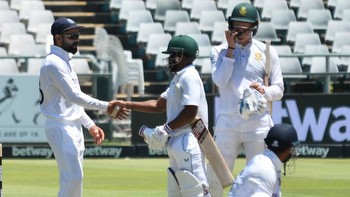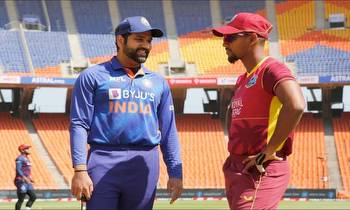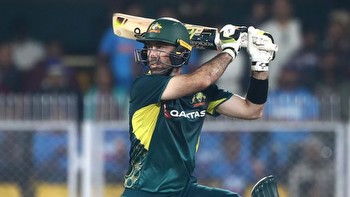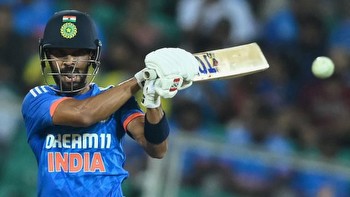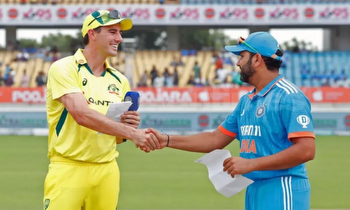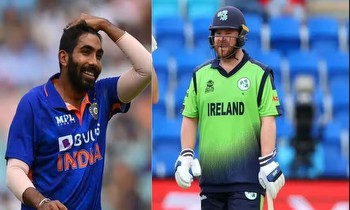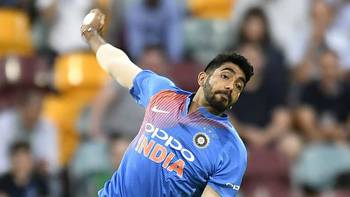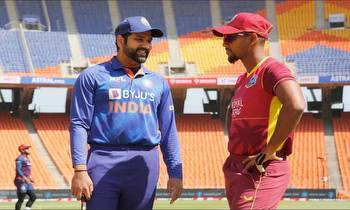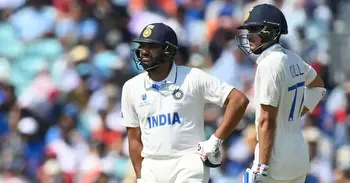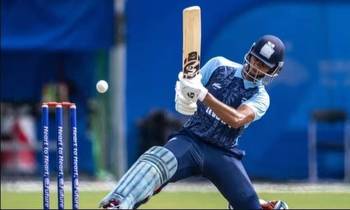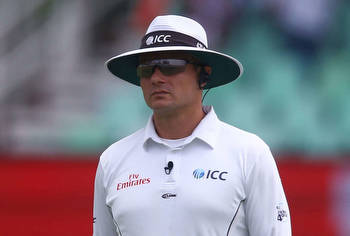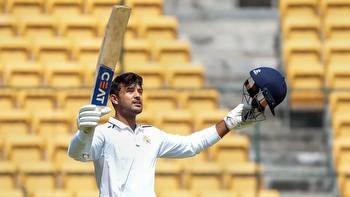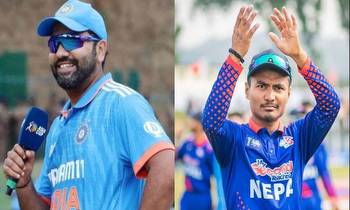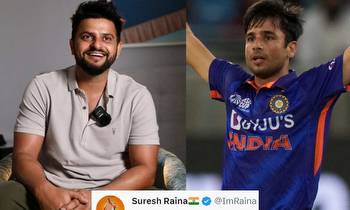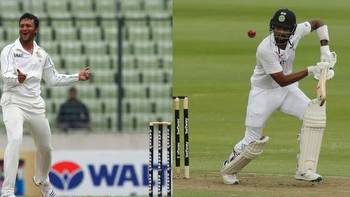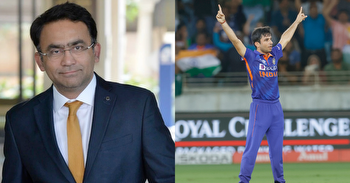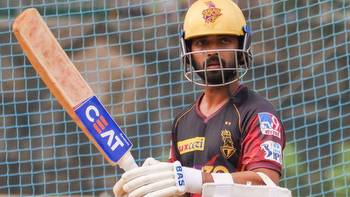The men who live in hope
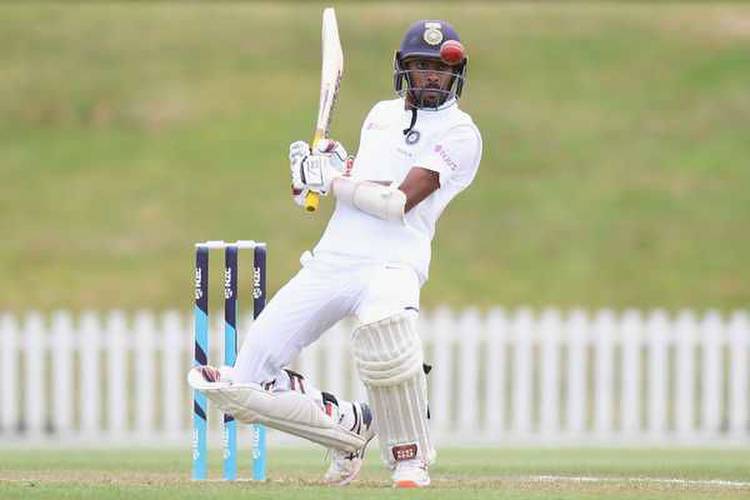
So, where is your cricket career at currently?
"Very close to where I want it to be," Abhimanyu Easwaran, the Bengal captain, said after a brief thought.
Only a few hours earlier, Priyank Panchal - his long-time India A opening partner - had used 'Great question' as a response to buy time while his eyes welled up and his voice choked. In a follow-up that sounded more like a chat with himself, he muttered, "It's difficult to say, but I'll do something. I'll make myself and whichever team I play for proud."
In the Duleep Trophy final, another opening batter in the fringes of the Indian national side went around hurling abuses in the middle of the game where the match officials were seated, going to the extent of accusing that they had accepted bribe to give a decision against him. The frustration for what was probably a harsh call was understandable, especially given how every opportunity takes him further or far away from that national berth again.
Panchal, on the other hand, had received a more practical word of advice from his fellow Gujarat teammate, Jasprit Bumrah: "Just don't expect anything. Agar kuch aana hoga to kabhi bhi aa sakta hai. Just perform and stay fit."
As tough as it might seem to accept that message, it's the bitter truth. At a time when he would have hoped to be with the Indian team in the Caribbean, he is in Bengaluru, leading West Zone in the Duleep Trophy final.
Abhimanyu and Panchal have been two of India's long-time investments to be the next-in-line Test openers, having graduated through the most natural progression of Indian cricket - Ranji Trophy, India A, India reserves, India squad. Heaps of runs in the longest format being their only currency. However, for the West Indies series, the Indian selectors reordered the queue and decided to put their bets on two younger talents - Yashasvi Jaiswal and Ruturaj Gaikwad - both of whom had opportunities to impress in the IPL, a tournament in which Panchal and Abhimanyu have not played.
Neither the selectors nor the team management has explained the rationale behind the decision as yet. But there can be plenty, and on a subjective basis, all of it could sound valid and fair for the direction they wish to take, even if it would be unfair to some others on more objective lines.
"It's pretty normal to feel disappointed when you're not in the team, when you think you've done well but you're almost there but not to be there. But when you look at it positively, I'm pretty close to where I want to be. If I continue doing well, I will be there," is Abhimanyu's sentiment.
With the Indian Test openers especially, the selectors have played roulette in recent years, trying out Rohit Sharma, Mayank Agarwal, KL Rahul, Prithvi Shaw, Shubman Gill and Yashasvi Jaiswal apart from other makeshift options. No first-class game was played since the previous Indian Test match when both Abhimanyu and Panchal fell off the radar of the selectors. It's not a problem that's limited to the two of them. It's the curse of Indian cricket - the strong bench strength, the endless supply of new talents and the ever-evolving vision that the team management chooses to move ahead with. Many lose their prime years of form while graduating to India A and then waiting in the national squad reserves.
They aren't the first ones to have been dealt that blow and they won't be the last. There is rarely any consolation to seek in the ultra-competitive world of Indian cricket, and rare that players are even allowed to emote their feelings. Some are gagged and some choose to remain quiet. Some attempt to spin narratives through PR agents. And when they speak, it's the endless monotony of 'trying to focus on the process', 'staying in the present', 'I played cricket for the love of it' or something along those lines.
Utterly philosophical and utterly pointless.
What they truly feel at the 'so-near yet-so-far' stage is left unspoken.
A veteran cricketer recently explained. "I know how it feels, but I can't say that out publicly. It's perceived in so many different ways and can lead to trouble, so I choose to remain quiet."
Much of Abhimanyu and Panchal's successful cricket has come away from the spotlight - no audio-visual coverage and barely a few people to watch from the stadium. And in the era where Bazball is fashionable and 'intent' demanded, their styles are more conventional even as they are effective. The little assessment that comes from the outsiders is on the basis of a few innings or sessions watched through a spread-out period. For as much as both of them want to enhance their reputation in white-ball cricket, neither has had a standout limited-overs domestic career or played an IPL game.
Even as both are aware that their best bet to play for India would be through red-ball cricket, they know that they can't not be performing across formats, and don't want to take the focus away from white-ball games either. For different reasons. Panchal laughs as he explains the change in focus.
"When I was not performing in white-ball, it hit me that I need to do well in white-ball as well," he says. "There are only a few red-ball matches that we play every year. Of course, my focus is on red-ball cricket, but I don't want to be left out when others are playing. Cricket is what I love and that's why we all are playing. If you can do well for three months and then showcase your other skills for the rest of the year, then why not? Confidence in one format is helping in the other format. When I do well with the new ball, it helps in white-ball cricket as well to score runs. Performances give you the confidence to take risks."
Panchal, much like Abhimanyu, is a heavy run-scorer but not necessarily at strike-rates that would put them on par with the best. Yet, the latter refuses to be termed a red-ball specialist. Five years younger, Abhimanyu looks at it differently.
"I've always wanted to be an all-format player. People have their perceptions, they are open to having one. My best chance at the moment is to play Test cricket but I've done well in white-ball cricket, improved my scoring areas and tried new shots. I've done my preparations in the offseason as well. I hope that comes out this season. I would love to be an all-format player because that makes me a complete player. I always wanted to be that player, who can contribute to the team - irrespective of the format."
Cricket as a profession in India, unlike most others, is rarely a solitary endeavor. Abhimanyu Easwaran, for example, isn't one person. They are two people living one dream. Abhimanyu and Easwaran, a son and a father, one who is diligently sweating it out on the field and the other who is wildly throwing his resources around to give wings to those dreams. Easwaran turns up for games where Abhimanyu is playing, shares the room with him, talks cricket and gives him his best-understood direction - his support, his motivator, his critic.
In a different way, Panchal gets the support of his mother and sister, as well as his fiance, who is a sports psychologist. The world of cricket is a bubble they live in like most others playing domestic cricket. When the passion has turned into a profession, it's not merry. Panchal reminds himself every now and then why he started playing the game. A recent entry in his diary, where he usually stores his thoughts and finds patterns to his innings and dismissals, was a reminder of his love for the game.
He explains, "It's a choice we have made, and that's where our happiness lies. You have to keep reminding yourself why you started playing cricket. It's a simple thing but you need to keep convincing yourself. This is what my dream was, and for as long as I'm playing I have to be very religious about my hard work."
Abhimanyu, who harbors hopes of playing in the IPL, says embracing the challenge is the only way out. "It's about balancing and understanding what's your focus. Of course, I started playing the game because I loved it, had a passion for it, and had the dream of playing for the country. But it's competitive as well. That is what brings out the best in me. It's the competition that motivates me. Challenges are something that I enjoy, to win games - be it for my club, my state or India A. There will be times when I will feel the pressure because it will be an important time in my life or for my team."
In the West Zone dressing room, for as long as he can, Panchal tries to sit next to Cheteshwar Pujara - a player who has been dropped from the Indian team for the West Indies series after playing more than 100 Tests, but also one who was in the opposition when Panchal made his first-class debut. He is initiating conversations, trying to pick the nuances of Pujara's understanding of the game. He is learning because he lives in hope.

